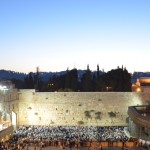B”H
PREPARATORY DAYS BEFORE PESACH (PASSOVER) 5778
IMPORTANT INSTRUCTIONS FOR PESACH
Shalom to Rabbis, Emissaries (Shluchim) of the Lubavitcher Rebbe, and Jews everywhere:
Following is a list of instructions for running a public Seder and getting ready for Pesach in general. The team at Da’at has worked on compiling and consolidating important laws regarding common situations concerning the Seder. Be sure to carry out all these instructions, because these are basic to getting it right on Seder night!
Selling Chametz
The prohibition against chametz on Pesach is not only against seeing it, but against having it in our possession at all on Pesach. Moreover, rabbinic law forbids any benefit to a Jew from chametz that was owned by a Jew on Pesach. Therefore, the accepted practice in Jewish congregations is to sell the chametz to a non-Jew. Make sure that all your congregants, friends and acquaintances sell their chametz, since many Jews are not aware of the need to do so.
Nullifying Chametz
Homes need to be cleaned thoroughly from any traces of chametz, especially in places like children’s closets, and also in forgotten places like electricity boxes and other unusual places.
If you are in a situation where you only got hold of your equipment for Pesach a few hours before the festival, or you hired a hall for the Seder and you only have the use of it that day, you should try to make sure that you have the use of the hall for a few hours before the Halachic time for finishing off all chametz, so that you can remove all traces of chametz beforehand.
If you got use of a place during the period of Pesach, you should perform a search for chametz as soon as you get there, making sure there are no traces left.
Our preferred method of making places kosher -for-Pesach is to avoid koshering surfaces as much as possible, but rather clean surfaces thoroughly, and cover them with some insulating material, such as PVC, corrugated plastic sheets or the like.
Distribution of Matzot
The Lubavitcher Rebbe mentioned often that every rabbi, shochet (ritual slaughterer), community leader, and every Jew who has connection with other Jews, should concern himself/herself with making sure that others have matzah shemurah (matzah made from wheat that was supervised from the time of harvesting to make sure it did not come into contact with water, in order not to become leavened) for the Seder night. It is worthwhile distributing kits of three matzot for this purpose, but if this is not possible, then at least a third of a matza per person. We recommend purchasing the broken (but kosher) matzot from a matza bakery, in order to distribute to as many people as possible.
The Communal Seder
Unfortunately, many Jews do not know how to perform a Seder by themselves, even if they have been keeping mitzvot for a number of years. Many people do not know all the details, so it is worthwhile arranging a communal Seder not only for people who are not yet observant, but also for observant people. In every community there should be a Seder with kosher food (of a high standard of kashruth), where the Seder is conducted according to all the relevant laws.
If, as a rabbi or shaliach, you wish to have a private Seder for your family as well, after the public one, you should make sure to finish the Afikoman before halachic midnight (chatzot). On the second night of Pesach (in the diaspora), the Afikoman may be eaten after chatzot.
Main Laws for Seder Night
The four cups: One of the main mitzvot of the Seder is to drink four cups of wine (or grape juice). It must be emphasized that drinking four cups of wine must be with pauses between each cup, and if it is not done in this manner, the mitzvah has not been carried out, and the wine must be drunk again in the proper manner.
Eating the Matzah: The only mitzvah concerning eating that is applicable even when we don’t have the Beit haMikdash (the Temple) is the mitzvah to eat matzah on the Seder night, so in addition to the recommended distribution of matzas beforehand, one must ensure that everyone, old and young, eat a kazayit (halachic measure) of matzah at least, and it’s even better if each person eats a quantity of two kazaitim (two measures) in order to fulfill all the opinions.
“Every person who did not say these three things on Pesach – has not fulfilled his obligation, and they are: Pesach, Matzah, and Maror.”
Leaning: Men are obligated to lean to the left during the recitation of the Haggadah, in the manner of royalty. The accepted practice is that women do not lean, but if there are women who are accustomed to leaning, they should not be stopped.
Nuts for children: It is a mitzvah to give children nuts, in order that they should stay awake at the Seder. At every communal Seder, attention must be given to the children attending. The whole point of the Seder is “And you shall tell your children on that day …”.
You should also make sure your own children do not get forgotten in the shuffle of many guests, and that they have their own place and role.
Seudat Moshiach (the Feast of Moshiach)
It has been handed down traditionally that a Seudah (festive meal) for Moshiach be made on the last day of the festival, at which a kazayit of matzah should be eaten, and four cups of wine drunk, as is done at the Seder. The Lubavitcher Rebbe strongly requested that a Seudat Moshiach should be conducted in all locations. It should be publicized everywhere possible, and aside from a general community event, it should be arranged in every shul and every group of Jews.
Chametz that Was Not Sold During Pesach
When buying grain products after Pesach (or any product that may contain grain), care should be taken to ensure that the place we buy from sold their chametz before Pesach. One should not patronize a business that does not have an original kashrut certificate from a familiar rabbinic authority upon whom he or she relies, to ensure that all the necessary laws were carried out.
Our custom is that there is no problem is using chametz goods after Pesach that were sold according to Halacha for the duration of Pesach. Thus we sell food products that contain certain chametz, not just suspected.
Questions during Pesach
Da’at will function during the days of Pesach, and especially during the preceding days. You may consult the rabbis on site, by telephone, and by SMS.
With blessings for a kosher and happy Pesach, and success in your holy work of disseminating Judaism and Chassidut!
May we merit the revelation of Elijah the prophet together with our King Moshiach already by the eve of this Pesach, and eat the Pesach sacrifices together!!!







